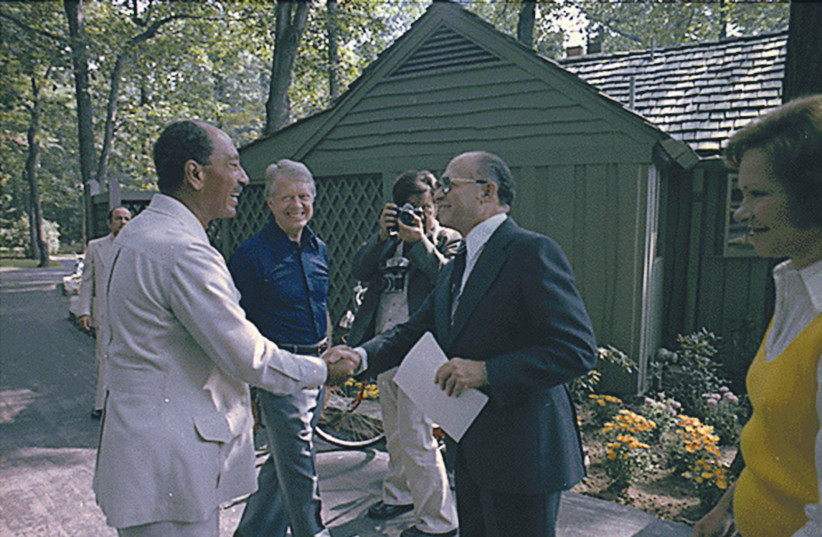On March 26, 1979, then-prime minister Menachem Begin and then-Egyptian president Anwar el-Sadat signed the Israeli-Egyptian peace treaty in what was the first of its kind between Israel and one of its Arab neighbors.
The three decades following the Israeli declaration of independence were hostile between Israel and Egypt, but in 1975, Sadat traveled to Jerusalem and met with Begin in order to discuss peace, diplomacy and commercial ties. During the trip, Sadat addressed the Knesset. This visit was unprecedented in that no Arab leader had visited Israel since its establishment.
Despite much criticism from the other Arab nations in the region, Sadat and Begin pursued the peace agreement, meeting in the US with then-president Jimmy Carter to negotiate the terms of the treaty at Camp David.
The agreement was finally signed on March 26 and included Israel returning Sinai to Egypt and Egypt opening the Suez Canal to Israeli ships.
Sadat and Begin were awarded the 1979 Nobel Peace Prize for their efforts to bring peace between the two nations. However, while the efforts were applauded elsewhere, the Arab nations were not impressed and Egypt was expelled from the Arab League, and two years after the treaty was signed, Sadat was assassinated in Cairo.

Despite the assassination, peace prevailed between Israel and Egypt, and 15 years later, another treaty was signed between Israel and Jordan.
